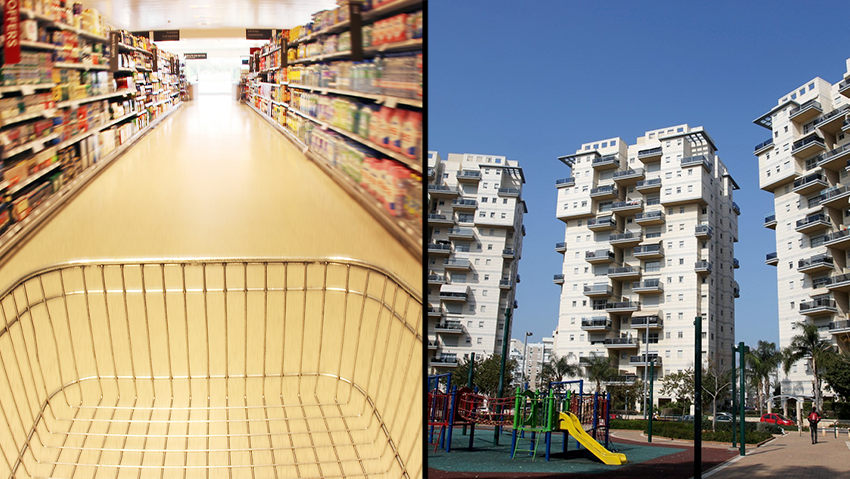The Consumer Price Index (CPI) in Israel rose by 0.6% in January 2025 compared to December 2024, pushing the annual inflation rate to 3.8%, up from 3.2% the previous month, according to data released Friday by the Central Bureau of Statistics (CBS). The January CPI was calculated using an updated methodology, with a revised weighting system and a new base period (average 2024 = 100.0 points).
Notable price hikes were recorded in the following categories: fresh fruit (up 2.5%), miscellaneous goods (up 3.3%), home maintenance (up 2.1%), food (up 1.0%), and rent (up 0.4%). Conversely, prices fell in several sectors, including clothing and footwear (down 4.2%), fresh vegetables (down 2.0%), and owner-occupied housing services (down 0.7%).
In the rental market, tenants who renewed leases saw their monthly rent rise by 2.6%, while those signing new leases experienced an increase of 3.3%.
The higher-than-expected CPI reading is likely to delay any potential interest rate cuts, though banking analysts still anticipate a rate reduction in the second quarter of the year, rather than in the latter half.
A strong shekel helped curb a sharper rise in inflation. However, the government's recent policy decisions—including an increase in value-added tax (VAT), rising property tax rates, and limited efforts to prevent surges in electricity and water prices—have contributed to the overall rise in costs. Public transportation fares are also expected to increase significantly in the near future.
The housing price index, which is published alongside the CPI but not included in it, showed that home prices rose by 0.4% in November-December 2024 compared to October-November 2024. This marks a slight slowdown from the previous index, which recorded a 0.6% increase
New home prices alone increased by 0.7% during the same period. Meanwhile, government-supported housing transactions (such as those under affordable housing programs) accounted for 24.7% of new home sales, down from 25.1% in the previous period. Excluding these subsidized transactions, new home prices rose by 0.2%.
Get the Ynetnews app on your smartphone: Google Play: https://bit.ly/4eJ37pE | Apple App Store: https://bit.ly/3ZL7iNv
On an annual basis, home prices in November-December 2024 were 7.3% higher than in the same period in 2023. This represents a slight slowdown from the 7.8% annual increase recorded in the previous index.
The CBS conducts a quarterly review of the nationwide average home price. In the fourth quarter of 2024, the average price of a home in Israel rose to 2.33 million shekels, marking a 2.7% increase from the third quarter (2.27 million shekels). Compared to the same quarter in 2023, when the average price stood at 2.17 million shekels, this represents a 7.6% annual increase.
Tel Aviv remains the most expensive region, with an average home price of 3.41 million shekels, while the northern district recorded the lowest average price at 1.55 million shekels.
A comparison of Israel’s 18 largest cities showed that average home prices exceeded 3 million shekels in Herzliya (4.12 million shekels), Tel Aviv (4.09 million shekels), Ramat Gan (3.22 million shekels), and Kfar Saba (3 million shekels).
In contrast, the lowest average home prices were recorded in Beersheba (1.28 million shekels), Ashkelon (1.71 million shekels), and Haifa (1.72 million shekels).


